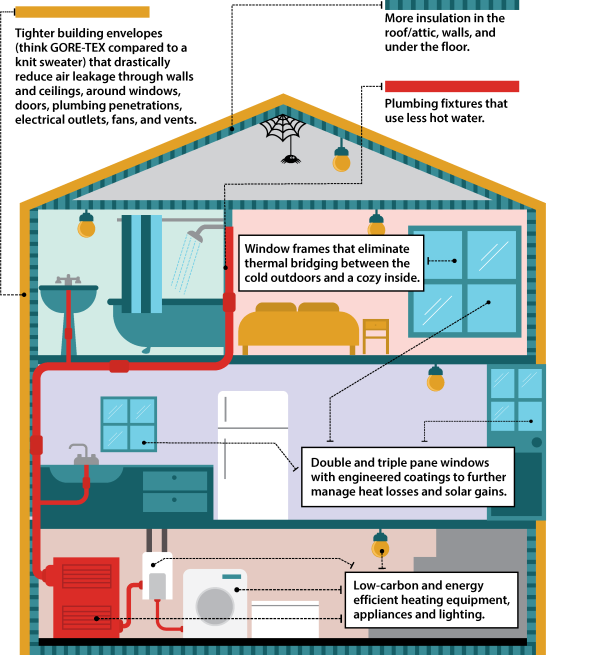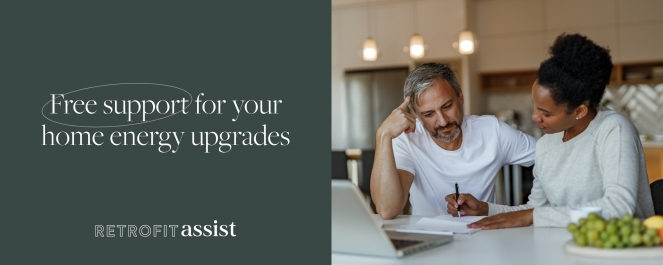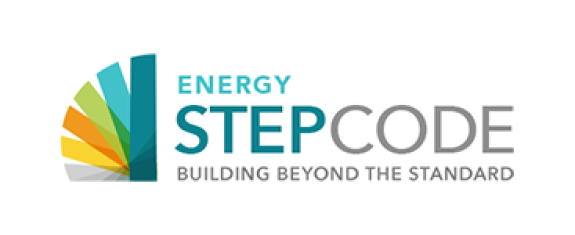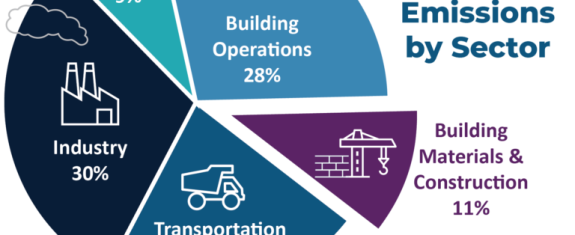Buildings
To meet our climate change targets, all new buildings must operate at net zero carbon by 2050. For all existing buildings, plans must include energy retrofits and switching to low-carbon heating systems at each upgrade opportunity.
In Squamish, buildings contribute 29% of our community’s total carbon emissions, largely because many buildings rely on natural gas as a primary fuel source and also because many of our buildings are not energy efficient. We can make major improvements in the buildings we have, and improve the construction of new buildings.
We are making buildings more efficient, resilient and comfortable.
Energy retrofits on existing homes
While local government has limited authority over energy retrofits on existing buildings, we can support initiatives led by the Province of British Columbia and the federal government of Canada, and look at creative funding opportunities to help homeowners make their houses, condos, and townhomes more energy efficient.
To encourage and accelerate home retrofits, free support for your home energy upgrades is accessible through Retrofit Assist. The Retrofit Assist program offers Squamish homeowners free and knowledgeable counsel from start to finish of your heating system upgrade. The program will soon be expanded to include energy savings measures like improving airtightness and adding insulation.
How can you make the biggest impact?
There are over 8,000 private dwellings in Squamish. Most were built before energy efficiency was first introduced into the BC Building Code in 2008. What do new energy efficient homes have that older homes don’t?

Loans, Rebates and Incentives
There are three types of support you can consider to help pay for energy upgrades to the home you own and is your primary residence: loans, rebates, and tax or Insurance breaks. Have a look at the various options currently available for homeowners. Make sure to review the federal and provincial websites in detail prior to starting an upgrade to ensure it is eligible.
Loans can be helpful for larger, more expensive energy upgrades, including converting your home’s heating to a heat pump. Loans specifically for single-family home energy retrofits are available through federal and provincial programs, as well as third-party financing.
Canada Greener Homes Loan
The Canada Greener Homes Loan offers $5,000 to $40,000 (credit dependent) interest-free loans for major home retrofits with a repayment term of 10 years. Loans can be accessed in addition to the Greener Homes Grant (see rebate details below).
CleanBC Better Homes Low-Interest Financing Program
The CleanBC Better Homes Low-Interest Financing Program provides loans of $1,000 to $40,000 (credit dependent) with an interest rate of 0% over an amortization period of 5 years, towards switching from a fossil fuel heating system to a heat pump. Loans are provided by Financeit and accessed via CleanBC Finance Registered Contractors. Applicants can apply for the low-interest financing offer or a heat pump rebate, not both.
Financial Institutions
Several financial institutions also offer low-interest loans for homeowners, including VanCity and RBC.
Homeowners can access several rebates available from the federal, provincial and municipal government. Here is a quick look at the key programs for residents who wish to conduct an energy retrofit of their home.
Energy Assessment Professionals
It is always recommended to start an energy retrofit journey by contacting a certified energy advisor; many rebates are contingent on completing a pre-upgrade evaluation and wait times will vary. You may be eligible to receive a rebate for the cost of this evaluation after upgrades are complete. Find an energy assessment professional near you at: CleanBC - Energy Advisor
Canada Greener Homes Grant
We recommend starting this process early. The Canada Greener Homes program is most advantageous for larger retrofits (i.e., completing multiple upgrades) but can be accessed for a single retrofit too. The grant and loan are one time asks, so it’s best to develop a whole home plan out all the work that you want to undertake. . Stipulations are that the project must include a pre- and post- retrofit EnerGuide home evaluation and ensure equipment and product are from NRCan’s approved product list. Installation of mechanical systems must be by a licensed contractor and the grant can be accessed in addition to the Canada Greener Homes Loan (see loan details above).
CleanBC Better Homes and Home Renovations Rebate Programs
Eligible homeowners can receive rebates for making their home more efficient through the provincial CleanBC Better Homes and Home Renovations Rebate Programs. One of the eligibility criteria includes having a residential utility account with FortisBC or BC Hydro. All installations must be by licensed professionals. You cannot access these rebates if you are approved for the CleanBC low-interest financing loan (see loan details above).
CleanBC Income Qualified Program
This program is for B.C. homeowners with eligible homes where the total household income is within an established threshold. You must pre-register for this program before renovations begin. With rebate coverage of 60% to 95% of eligible upgrade costs, it’s worth checking if you qualify: CleanBC Income Qualified Program.
Other Programs
Additional rebates are available from BC Hydro and FortisBC.
District of Squamish Top Ups
The District of Squamish is using funds from the Provincial Local Government Climate Action Program to top up existing incentives that are offered by the Clean BC Better Homes program. Homeowners who switch from a fossil fuel heating system to an electric air source heat pump may be eligible for a $350 top up for heat pump installations (approved on a first-come first-serve basis). This top up is administered when you apply for your CleanBC Better Homes rebate for an eligible heat pump.
Learn how multiple rebates and financing offers can work together: CleanBC offers free Energy Coach Services available for homeowners and contractors looking for information and general advice about energy efficiency upgrades and rebate programs. Email [email protected] or call 1-844-881-9790
Making new buildings energy efficient
As an early adopter, the District has been enforcing the BC Energy Step Code since 2018, a section of the BC Building Code that ensures all new buildings are energy efficient. There are also zoning incentives in place to encourage new homes to use electricity for heating for a lower carbon footprint.
A new embodied emissions guide for buildings
A building’s embodied emissions relate to the greenhouse gases released from the extraction, manufacturing, transportation, installation and decommissioning of building materials. The District of Squamish, Resort Municipality of Whistler and Squamish Nation were fortunate to receive funding from the Community Energy Association’s Game-Changer program to create an embodied carbon guide.
The Embodied Emissions Guide, finalized in December 2022, outlines many ways a community can reduce embodied emissions, reduce building waste, and contribute to a circular economy.






